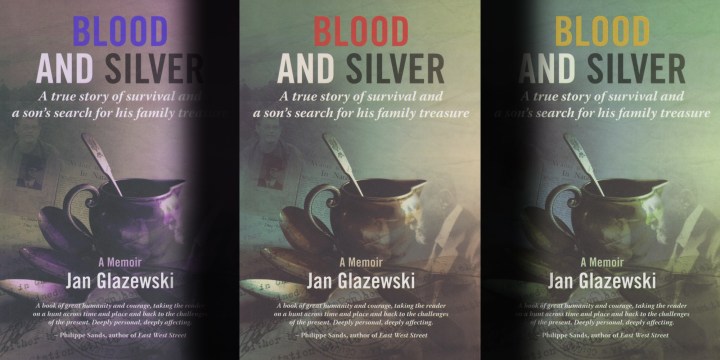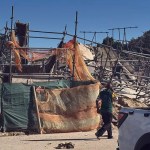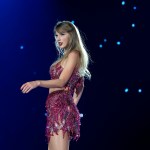BOOK EXTRACT
‘Blood and Silver’ — A true story of survival and a son’s search for his family treasure

Before fleeing what is now Ukraine after World War 2, Jan Glazewski’s father buried the family silver in the forest. When Jan is born in 1953, he nearly dies of severe haemophilia. He later discovers that he is HIV-positive from receiving contaminated blood products. In 2004, he journeyed to Ukraine to search for the family silver. ‘Blood and Silver’ is published by Tafelberg.
In October 2004, armed with maps I had bought at Stanfords in London, which claims to be “the world’s biggest and best map shop”, I flew to Warsaw. Here I had arranged to join my maternal cousin Paweł, his daughter Ewa, and her fiancé, Gabriel, on what was to be my first trip into Ukraine. I was excited to be setting off with them on the next day, first to explore my ancestral town of Lviv, and then to travel through the countryside to Chmielowa, site of my grandfather’s manor house. At the back of my mind was the intention of returning sometime in the future to undertake an extensive search for the family silver, which my father had buried before fleeing Poland at the start of World War 2.
I had always imagined that Chmielowa was the name of the estate that my father talked about — in the same way that Vygeboom was the name of the farm outside Durbanville. On the eve of our departure to Ukraine, I spread out the maps I had bought on the kitchen table, to discuss our route. After a minute or so, Paweł, who could read Cyrillic, exclaimed, “Here is Chmielowa!” It suddenly dawned on me that Chmielowa was the name of the village, and that the name was used interchangeably by my father to refer to both the village and the family estate.
Although the Soviet government had collapsed more than a decade previously, Ukraine, as I correctly suspected, still had the lingering reek of communism about it. I first sensed this at the consulate in Pretoria, where I had to bypass stern-faced, armed guards to obtain a visa. (A few years later I was to obtain a Polish passport and so subsequently no longer needed to apply for visas.) In the austere waiting room, I signed a book of condolences for Ukrainian miners who had died in a recent accident that I had not even heard about. I then filled in a plethora of forms and eventually was granted a visa by a stony-faced official.
At last, we are packing Gabriel’s van outside the Dom Poselsky hotel, adjacent to the Polish parliament, our designated meeting point. It is an overcast but warm autumn morning. I have trouble containing my excitement. As we navigate through Warsaw’s morning traffic, I calculate that, at an average speed of 100 kilometres per hour, we’ll reach Lublin, halfway to the Ukrainian border, in time for morning tea. I tell this to my companions.
“No,” says Gabriel, the driver, “we first have to stop at a scrapyard. The radiator developed a leak during my holiday in Italy.” I suppress my frustration. We eventually find a car scrap centre on the outskirts of Warsaw and I surprise myself with my patient attitude. Perhaps that mindfulness meditation course I did a few months back in Cape Town was of some use after all.
We don’t succeed in getting a replacement radiator but instead patch the existing one. We leave after two long hours and reach Lublin by lunchtime. Then on to the next large town, Zamość, where we walk around the beautiful old market square in the town centre. I take pictures of my cousins, and with Gabriel’s smartphone, we email them to my sister Wanda back in South Africa. I read in my Lonely Planet guidebook that this area teemed with Jewish people prior to World War 2, and as we stroll around the central square, I can almost hear the merchants plying their trade.
Visit Daily Maverick’s home page for more news, analysis and investigations
We are on the road again, and I note with interest that the road signs indicating the distance to the town give the old Polish nomenclature, Lwów, rather than the official Ukrainian Lviv. I wonder if still calling it Lwów is an indication of the Poles’ persistent sentimental attachment to the town they’d lost after the war.
We are running much later than I expected. The prospect of leaving the European Union and entering a former communist country with a residual communist bureaucracy and heavy-handedness unnerves me. I’m not the only one. Tension mounts in the car when we get to the border. It’s nearly nightfall. We get through the Polish side in about fifteen minutes. But then, for the next hour or so, we sit in a queue in the no man’s land between the Polish and Ukrainian sides. Eventually, our car pulls up alongside the Ukrainian customs control officials. The light in the kiosk casts an eerie silhouette on a sombre-uniformed woman as she saunters down to our car. I am reminded of war movies where tall blonde German women accost the hapless hero. She grabs the four passports from Gabriel’s outstretched hand, three Polish and my South African one. She flips through the first three nonchalantly. But my passport seizes her intense gaze and clearly interests her. It is not often that a South African with a Polish surname crosses the border. She disappears back to the kiosk, passports in hand. The wait seems interminable, though she returns after twenty minutes.
“Pan Paweł,” she calls out briskly.
My cousin shouts: “To ja!”
The official is satisfied that his face matches the passport photograph. The same procedure is repeated with Ewa and Gabriel. Then it is my turn.
“Pan Jan!”
“To ja,” I reply in the strongest voice I can muster.
“Where were you born?” she rasps in Polish, squinting at my passport in the fading light.
“In South Africa,” is my reply. I recollect uneasily that my father had unlawfully left this part of what was then Poland, with no papers.
“When were you born?” she rasps. I tell her 1953, even though it is all there in the visa attached to my passport, which she is holding with her thick fingers.
“Where are you going?”
“To Lwów,” I respond, thinking of all the road maps next to me where I have marked the route to Chmielowa, about 200 kilometres deeper into Ukraine.
“Why are you going there?”
“Tourista,” I respond, thinking of my grandfather’s grave, which is hardly on the tourist map.
We are eventually waved through, though I am exasperated because Gabriel has to stop once again to purchase car insurance and check his leaking radiator.
But we are in Ukraine, and I am happy, although by now it is getting dark.
We reach Lwów after an hour or so. First impressions on the outskirts of the town are disappointing: rows of nondescript industrial buildings and plain houses. But as we reach the centre, the cityscape changes. There are wide cobbled streets, with trams rattling along in the middle. We must find Gabriel’s friend’s parents, and although he has been there before, he cannot remember the way. Their home is in Kotlarewśkoho Street. ML/DM
Jan ‘Janek’ Glazewski is of Polish descent. Born in Paarl in 1953, he is Emeritus Professor in the Institute of Marine and Environmental Law at UCT. He was involved in ensuring the incorporation of environmental rights in the South African Constitution, and has written the leading textbook in the field, Environmental Law in South Africa.





















I’m just saying, I think you gave in far too easily to those Polish/’Kraine thugs, Jan! I would have demanded at least a tax receipt. 🙂